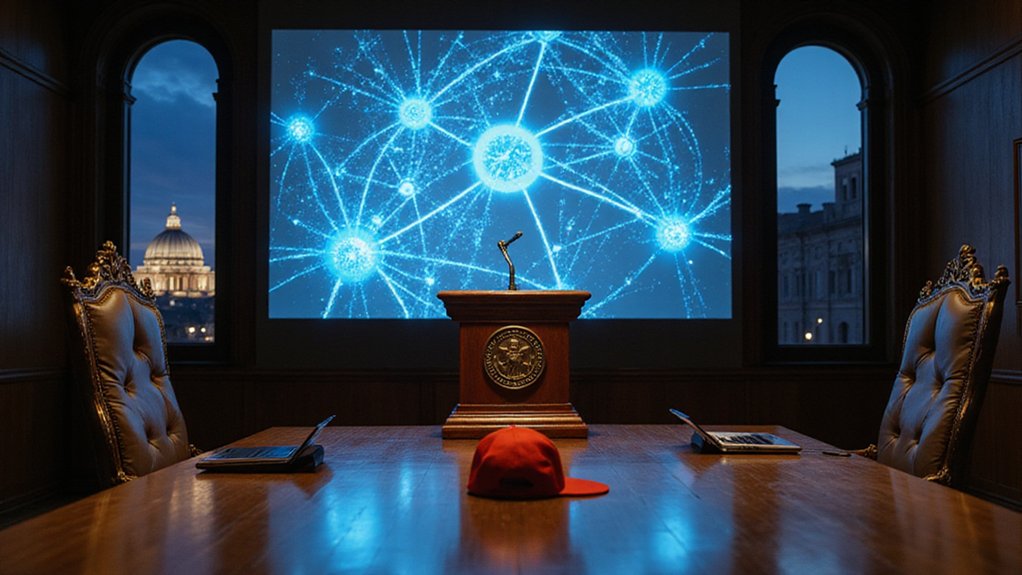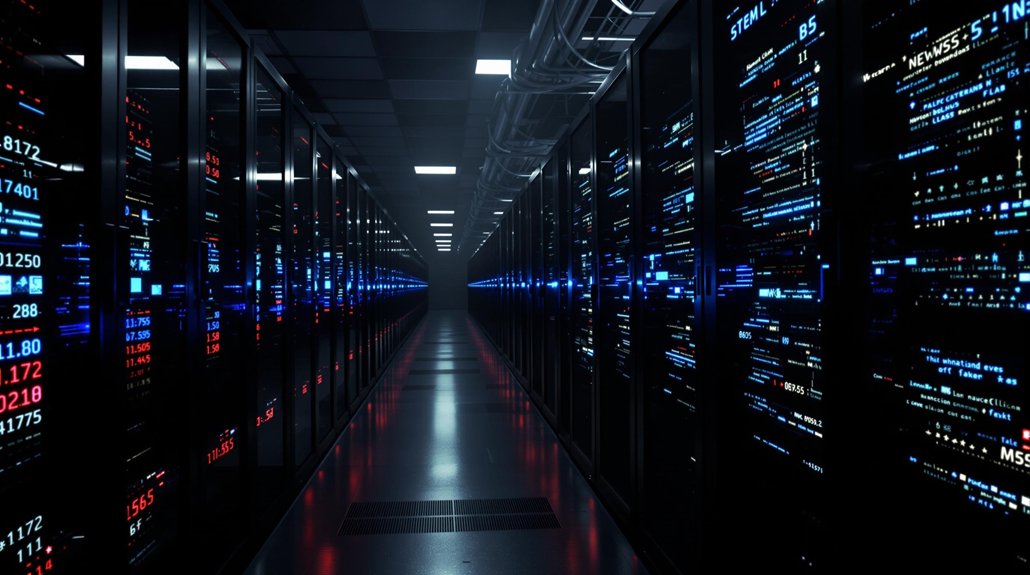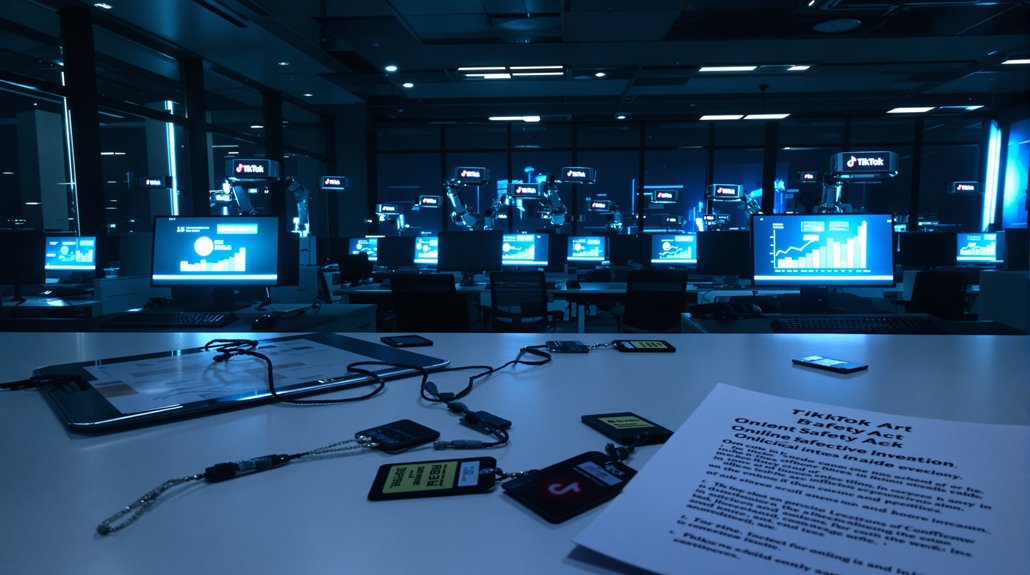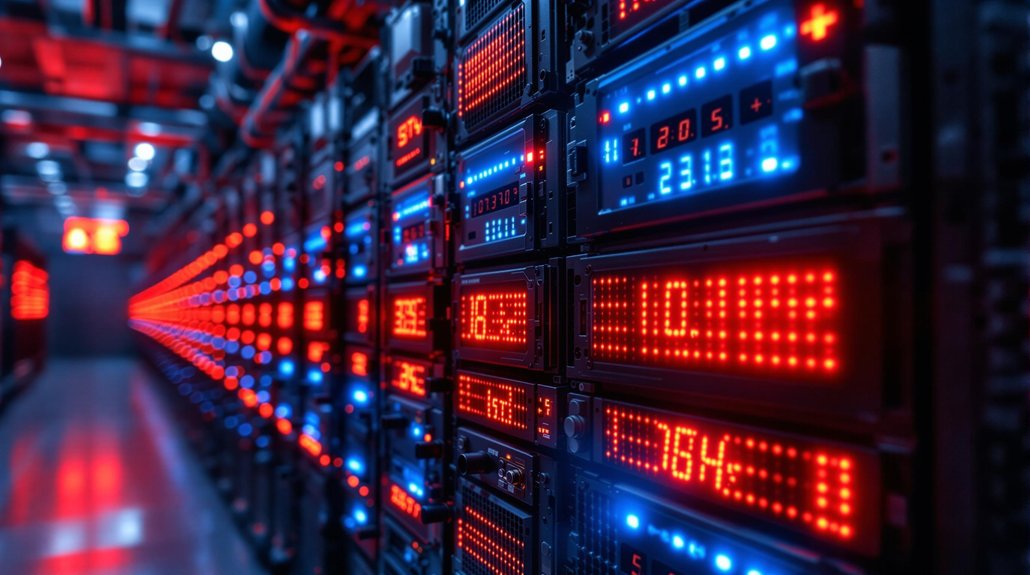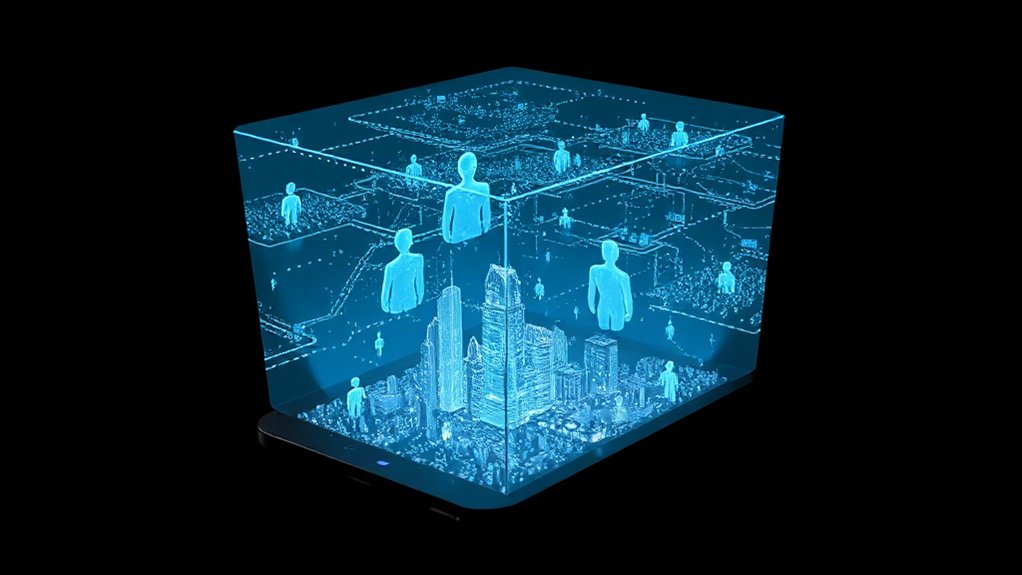While AI technology continues to explode at a blistering pace, the world’s moral compass struggles to keep up. The global AI market, now valued at $391 billion, is projected to quintuple in just five years. That’s not just growth—it’s a tsunami of technological change crashing onto society’s shores with little warning.
Companies aren’t waiting around for ethical guidelines. A whopping 92% plan to increase AI investments soon, and 83% consider AI a strategic priority. Money talks, ethics walks, apparently. The United States leads this gold rush while healthcare providers enthusiastically integrate AI into diagnostic processes—38% already have.
The corporate AI stampede charges forward while ethical considerations lag behind—profit trumps prudence in the technological Wild West.
Meanwhile, Pope Leo XIV is sounding alarm bells, warning politicians about the dangers of unchecked AI development. He’s not alone. Experts everywhere are pointing out the obvious: our ethical frameworks are playing catch-up in a race they’re clearly losing.
The numbers don’t lie. AI performance improved by up to 67.3 percentage points across benchmarks in just one year. Autonomous vehicles are already providing 150,000 rides weekly. Netflix rakes in a billion dollars annually from its AI recommendation system. Progress? Sure. Properly governed? Not even close.
The gap is widening. AI systems now generate videos, write code, and solve complex problems—sometimes beating humans at their own game. Smaller models are getting smarter, too. Great for business, maybe not so great for society without proper guardrails. Several major frameworks including IEEE guidelines now exist to promote AI ethics and responsibility, yet implementation remains inconsistent.
Real-world incidents involving problematic AI behaviors are increasing. No surprise there. When technology evolves faster than our understanding of its implications, problems are inevitable. Regulatory measures can’t keep pace with innovations that emerge almost daily.
The disconnect is jarring. While 97 million people will work in AI-related fields by 2025, policymakers still struggle to comprehend what they’re regulating. Public understanding remains woefully inadequate. Transportation workers face the highest risk of job automation at 56.4%, yet meaningful protections remain absent. McKinsey suggests AI could contribute extra $4.4 trillion in productivity growth, highlighting the economic stakes in this ethical balancing act.
References
- https://explodingtopics.com/blog/ai-statistics
- https://www.mckinsey.com/capabilities/mckinsey-digital/our-insights/superagency-in-the-workplace-empowering-people-to-unlock-ais-full-potential-at-work
- https://hai-production.s3.amazonaws.com/files/hai_ai_index_report_2025.pdf
- https://www.amplifai.com/blog/generative-ai-statistics
- https://abc3340.com/news/nation-world/report-takes-wide-ranging-look-at-ai-and-its-absolutely-astonishing-pace-of-development-stanford-institute-for-human-centered-artificial-intelligence-ai-index-report?photo=1
